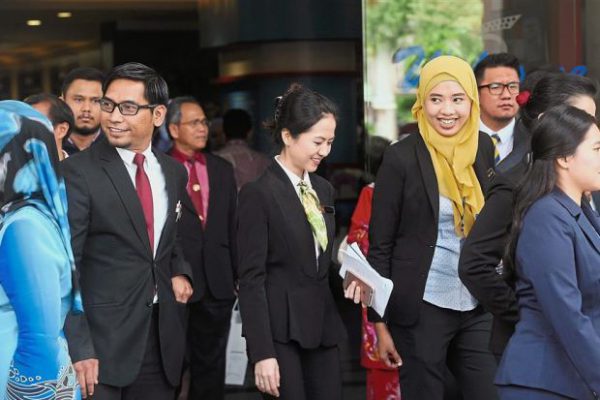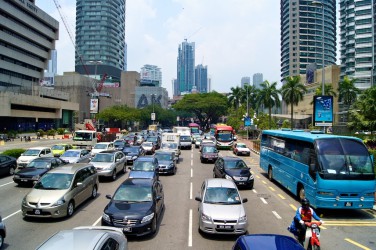BNM: No cap on civil servants’ debt service ratio for mortgages
Bank Negara Malaysia (BNM) has highlighted that commercial banks have “considerable flexibility” to decide on mortgage approvals. There is no cap on civil servants’ debt service ratio (DSR), as loan affordability is assessed based on borrowers’ financial circumstances. The DSR adopted by financial institutions takes into consideration factors that include a borrower’s income, existing debt repayment obligations a borrower is already committed to, and reasonable buffers to meet essential expenditures and emergencies, it added. The central bank disagrees with the view that commercial banks are too strict with housing loans, leading to complications of house ownership. (The Edge Markets)

Exchange 106 tower in TRX is currently under construction
No more MoF funding for TRX infrastructure requirements
Last week, the senior management of TRX City Sdn Bhd (formerly 1MDB Real Estate Sdn Bhd) met up twice with officiala from the Ministry of Finance. While details of the meetings are being kept under wraps, it is believed that the government is not willing to inject any more money into the 70-acre Tun Razak Exchange (TRX) financial centre in the city centre. At present, TRX needs funds mainly for infrastructure development, which is estimated to cost between RM1.5 billion and RM2.5 billion. It is understood that plans at TRX ran into difficulties when the sale of Bandar Malaysia fell through last year. There was a plan for Minister of Finance Inc to buy Bandar Malaysia off TRX City but this was terminated following the results of the 14th general election. (The Edge Markets)
SST expected to reduce cost of living
The move to abolish the Goods and Services Tax (GST) and reintroduce the Sales and Services Tax (SST) is expected to lower the cost of living in the country. SM Thanneermalai, chairman of the board of trustees at the Malaysian Tax Research Foundation, says the prices of goods will come down, but the savings are expected to be marginal as the scope of the SST may be broadened. Under the proposed plan to reintroduce the SST, the Pakatan Harapan (PH) government expects to generate RM30 billion in revenue as opposed to the RM44 billion collected under GST by the previous administration. “That means an estimated RM14 billion will remain in the pockets of the rakyat,” says Thanneermalai. (The Edge Markets)
Cheaper alternative to HSR feasible, but short-sighted, say experts
Even if the authorities upgrade Malaysia’s Keretapi Tanah Melayu (KTM) railway infrastructure as a cheaper alternative to the Kuala Lumpur-Singapore high-speed rail (HSR) project, it may still take time and need substantial work, experts said. The move may turn out to be penny wise and pound foolish further down the road, with Singapore and Malaysia left behind while other countries pursue a regional HSR network. The alternative involves adding a single rail line next to the KTM’s existing double track, allowing it to cater for “standard-gauge” trains. Analysts said that this is not a straightforward process, and considerable work has to be done, such as flattening curves along tracks and developing land along certain areas. In the longer term, many SEA countries would benefit from an integrated high-speed rail system throughout the region in two or three decades. When that happens, Singapore and Malaysia could be left behind if there is no network to match that. (NST Online)
Sabah developers awaiting new govt’s housing policy announcements
Sabah property developers and investors have put property launches on hold pending the new government’s housing policy announcements after GE14. Sabah Housing and Real Estate Developers Association (Shareda) president Chew Sang Hai said the housing market had gone quiet with no new property launches this year thus far. Developers are currently still selling old stocks. He said property developers had initially speculated that the market would rebound after the May election. However, since the change in government, developers, buyers and investors have adopted a wait-and-see attitude, pending new policies or regulations that may be introduced by the new administration. (The Borneo Post)





